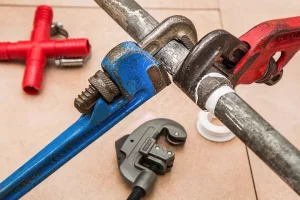
Homeowners Grapple with Climate Change and Insurance Premiums
As climate change unfolds, homeowners are becoming more mindful of its potential influence on insurance premiums, proactively seeking solutions to mitigate its effects. A recent Fox Business report highlights this growing worry, as more frequent and severe natural disasters are causing insurers to reevaluate their pricing models.
Millennials Opt for Renovations Over Selling
The impact of climate change on the housing market extends beyond insurance. MSN recently published an article highlighting how millennial homeowners renovate their homes instead of selling. This trend is driven by environmental concerns and the desire to invest in energy-efficient upgrades and sustainable living practices.
Best Homeowners Insurance Options in Florida
In light of these concerns, homeowners seek the best possible insurance coverage. Forbes recently released an article outlining Florida's top homeowner's insurance options, a state known for its vulnerability to natural disasters. The report suggests that homeowners should prioritize comprehensive coverage and select insurers with solid financial ratings and a history of reliable claims processing.
New York Times Explores Home Insurance and Climate Change
The New York Times recently delved into the challenges homeowners face as they navigate insurance in the age of climate change. The article emphasizes the importance of understanding how insurers approach climate-related risks and coverage exclusions. It also encourages homeowners to consider supplemental policies like flood insurance to ensure they are adequately protected.
As climate change reshapes the housing market and insurance landscape, homeowners must stay informed and adapt their strategies accordingly. This includes selecting the right insurance coverage, investing in sustainable home improvements, and understanding the potential long-term implications of climate change on their properties.
Adapting to Climate Change through Home Improvements
Homeowners can better prepare for climate change by investing in home improvements that increase their properties' resilience against extreme weather events. Some examples include installing hurricane-resistant windows, reinforcing roofs to withstand high winds, and elevating homes to minimize flood risks. By making these adjustments, homeowners can reduce their insurance premiums and protect their homes from costly damages.
The Role of the Government and Insurance Industry
The government and the insurance industry have a role to play in addressing the challenges of climate change. Governments can implement building codes promoting climate-resilient construction and incentivize homeowners to invest in energy-efficient upgrades. On the other hand, insurance companies can develop innovative insurance products that address climate change risks and educate homeowners on the importance of mitigating these risks.
The Future of Homeownership and Climate Change
As climate change continues to impact the housing market, homeowners must stay informed about the latest developments in insurance, sustainable living, and home improvement. By staying ahead of the curve, homeowners can protect their properties and contribute to global efforts to combat climate change. The future of homeownership will likely involve a greater focus on sustainability, resilience, and proactive measures to adapt to the ever-changing climate.
A notable trend has emerged: an increasing number of people are relocating to southern states in search of milder weather and a more resilient environment. This shift not only highlights the growing awareness of climate change but also showcases the adaptability of individuals seeking a more sustainable living situation. As the population in these areas grows, it is expected that further development and infrastructure improvements will follow, ultimately transforming these southern states into thriving, eco-conscious communities.

James Smith is our editor. He is an accomplished and versatile news writer with over a decade of experience covering a wide range of topics, including politics, business, and real estate. Throughout his career, James has been dedicated to uncovering the truth and presenting unbiased, factual reporting to his audience.







